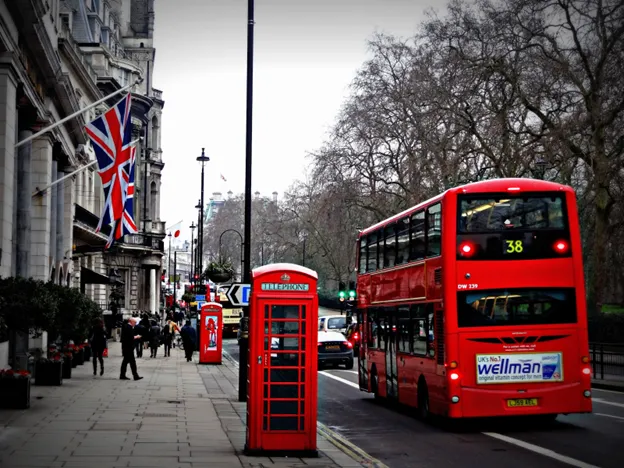What is the earliest I can apply for ILR?
In order to apply for Indefinite Leave to Remain (ILR) you must sure that you are applying at the correct time otherwise you could fail to be granted ILR.
For more information on how Immigration Advice Service can help you with your Indefinite Leave to Remain application, call our friendly team of advisors today on 0333 305 9375 for further guidance.
Read our 1001 reviews
IRL and qualifying periods in the UK
There are a number of benefits to having ILR status including being able to access free healthcare or public funds. In addition, it enables you to bring family members, including dependent children, to live in the UK with you. Eventually, ILR status also means you can apply for British citizenship and a British passport.
Changes in immigration law mean that the earliest opportunity for applying for Indefinite Leave to Remain has increased in recent years. At one point, it was possible to qualify for ILR status after being a UK visa holder for two and a half years. However, this route is no longer an option for those hoping to gain settled status and eventually become a British citizen.
For many hoping to gain ILR they will need to have continuous residence in the UK or either five or ten years depending on their current visa category. Although, there are some visas that do allow an application to be made for ILR within three years of coming to the UK.

Visas that offer accelerated route to Indefinite Leave to Remain
Different UK visas have different conditions attached to them and some offer a quicker route to gaining settled status in the UK.
Immigration rules allow you to apply for accelerated route indefinite leave to remain if you are in the UK on one of the following visas:
- Family visa or spouse visa, and your partner has either died or the relationship has ended due to domestic abuse
- Innovator Founder visa
- Global talent visa
If you are in the UK on one of these visas then the earliest date you can apply for ILR could be three years – although certain conditions may need to be met so you should seek advice before making your Indefinite Leave to Remain application.
Spouse visa and accelerated route to UK Indefinite Leave to Remain
The Spouse Visa, also referred to as Marriage Visa, allows foreign nationals to join their partner in the UK. To qualify your spouse must hold British citizenship or be a UK settled person.
For most people are a Spouse visa they will have to wait for five years before applying for ILR . However, there are circumstances that could remove the five-year continuous residence requirement for spouse visa holders leaving in the UK.
The five years residence requirement does not apply following the death of a partner – so anyone whose wife/husband has passed away can apply for ILR before the five years is reached.
The other situation in which the qualifying period could be waived is if the spouse visa holder has been the victim of domestic violence and the relationship has ended because of the abuse.
Applying for Indefinite Leave to Remain after five years
Many people staying in the UK on visas are eligible to apply for Indefinite Leave to Remain once they have a history of five years of continuous residence in the UK. To make a valid Indefinite Leave to Remain application under UK immigration rules you must not have been outside the country for more than 180 days in any consecutive year. This requirement may be waived but only in exceptional circumstances.
The five years application route option for most people who are living in the UK with one of the following visas:
- Spouse visa
- Unmarried partner visa
- Family visas
- Skilled Worker visa
- Minister of Religion visa
- Sportsperson visa
- UK Ancestry visa
- Global Talent visa
- Dependent child of a visa holder
Indefinite Leave to Remain after ten years
For some people they may have to show they have a history of continuous residence in the UK for at least 10 years. To meet eligibility requirements they must be able to demonstrate why they could return to their home country during this time.
Examples of those who qualify for the 10-year route to ILR include those who:
- Have resided continuously in the UK for 20 years
- Are 18-25 and have spent at least half their life in the UK
- Are at least 18 and have lived in the UK for less than 20 years but have no ties to their country of birth
- No valid immigration status, and are therefore an illegal immigrant/over-stayer with an expired visa
The 10 year route to gaining Indefinite Leave to Remain status can be complicated and you may wish to seek immigration advice from a professional before completing application forms.
It is important to note that you would not be eligible for settled status if the following apply:
- You have been absent from the UK for more than 6 months at a time
- You have spent more than 18 months total outside of the UK within the 10 year period
How and when to apply for Indefinite Leave to Remain
It is important to understand when you should make your application for Indefinite Leave to Remain otherwise if you apply to late it could be refused.
The earliest possible application date for ILR is 28 days before the five-year anniversary of being given leave to enter the UK rather than the date of actual entry to the country. This means the time taken between being issued a visa and coming to the UK is included. However, if this time was more than 90 days then this will not be included and the anniversary date/qualifying period should be based from the date of entry to the UK. You should apply for ILR before your visa expires.
There are two forms which are used for Indefinite Leave to Remain applications – Form Set (O) and Form Set (M). This can be completed online and you will have to provide a range of supporting documents explaining your personal circumstances.
Form Set (M) is the form that needs to be completed when someone applies for ILR as a partner of someone, or parent of a child who is already settled in the UK
All other ILR applications should be made on the Form Set (O). This includes those who have been living under the Investor and Global Talent visas, Long-term Worker visas, Skilled Worker Visas PBS dependants and those on UK Ancestry visas.
Table of Contents
Table of Contents will appear here.Table of Contents
Table of Contents will appear here.Legal Disclaimer
The information provided is for general informational purposes only and does not constitute legal advice. While we make every effort to ensure accuracy, the law may change, and the information may not reflect the most current legal developments. No warranty is given regarding the accuracy or completeness of the information, and we do not accept liability in such cases. We recommend consulting with a qualified lawyer at Immigration Advice Service before making any decisions based on the content provided.















